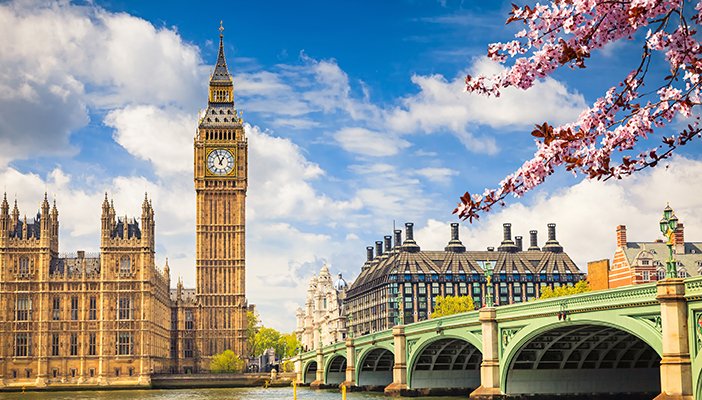RNIB responds to the Queen’s Speech 2021
On 11 May, the UK Government’s priorities for the year ahead were announced in the Queen’s Speech. Find out what we have to say about some of the relevant issues affecting blind and partially sighted people living in the UK.

We followed the speech for key issues relevant to blind and partially sighted people.
Electoral Integrity Bill
An Electoral Integrity Bill will aim to prevent voter fraud by requiring voters to prove their identity at elections with photo ID. We’ve heard that ID will not be restricted to just driving licences or passports, but will include freedom / travel passes, proof of age cards and a new free electoral ID card.
We’re concerned this requirement for voter ID could have a disproportionate impact on blind and partially sighted voters. While many will already have acceptable ID, such as a passport or bus pass, we’re worried that a significant number might not have any, and such a change to the law could become a barrier to blind and partially sighted people’s democratic right to vote. This will be a key area for our work in the months ahead.
Health and Disability Green Paper and National Disability Strategy
The Government will be publishing a Health and Disability Green Paper as well as a National Strategy for Disabled People. The stated aim of the strategy is to set out practical changes to “remove barriers and increase opportunity” for disabled people.
We’ll be looking to see if the Green Paper and National Strategy are sufficiently ambitious and given sufficient funding to meet their aims. We’ll be ready to respond, along with our partners in the Disability Charities Consortium (DCC).
“Project Speed” and the Rail White Paper
Infrastructure and transport are being prioritised for spending, with “Project Speed” aiming to deliver projects more quickly. A Rail White Paper will include making rail “more accessible and inclusive”, and there’ll be a focus on improving bus services across England (outside London).
With the emphasis on Project Speed, we need to make sure this doesn’t erode the requirement to publicly consult, or to conduct Equality Impact Assessments for infrastructure changes and designs. We want to see inclusive design being championed in national infrastructure investments, to ensure that walking is safe and accessible for all, including blind and partially sighted people.
Given the high level of investment anticipated for rail and bus services, we want funding to be earmarked for access and safety improvements. Local bus travel is essential for blind and partially sighted people’s independence in rural areas, and this could be an opportunity to improve access.
Judicial Review Bill
A Judicial Review Bill will set out the Government's plans to change how its decisions can be challenged in the courts.
We’ve seen before the importance of Judicial Review when it comes to enforcing disability rights. For example, the judicial review on the Health Secretary’s failure to provide accessible coronavirus shielding correspondence for blind and partially people led to the Department for Health and Social Care agreeing to make sure preferred formats are recorded and acted on.
Procurement Bill
A Procurement Bill will create a single post-Brexit framework for public procurement.
However, we’re concerned that far too often, public services remain inaccessible to blind and partially sighted people, and that when the private sector delivers public services, the requirement to take accessibility into account seems to be widely ignored. For example, we worked with the Government to make coronavirus home testing kits more accessible, because they weren’t designed with accessibility in mind from the outset.
Unless accessibility requirements are placed at the heart of a Procurement Bill, relaxation of existing procurement rules could lead to public services becoming even more inaccessible.
Health and Care Bill
We’re disappointed that social care was only briefly mentioned, with no details about proposals to reform adult social care to come until later in the year.
A particular concern of ours is that the work of vision rehabilitation services is poorly understood and undervalued, with a large backlog for assessment and support which needs to be urgently addressed. Some newly diagnosed blind and partially sighted people were left without support to regain independence during the pandemic, because rehabilitation staff were not considered an equal priority alongside other NHS and social care staff.
The Health and Care Bill will create a legal status for Integrated Care Systems, which bring together Clinical Commissioning Groups into larger bodies, alongside other health and care partners and local authorities. It is vital that all Integrated Care Systems implement the same eye care pathway.
Employment and livelihoods
A "Levelling Up” White Paper will be published to set out “interventions to improve livelihoods and opportunity in all parts of the UK”.
With only one in four blind or partially sighted people in work, it’s essential this investment helps to address the disability employment gap. This includes specialist support when seeking employment and accessible recruitment by employers. For those in work, support from the Access to Work scheme needs to be fit for purpose and accessible.
SEND Review
Work will continue on the delayed review of Special Educational Needs and Disabilities (SEND), which aims to ensure the SEND system is consistent, of high quality and integrated across education, health and care.
We urge that any new measures must ensure children with vision impairment can fully participate in and benefit from education, through timely intervention and support, including from a Qualified Teacher of Vision Impairment (QTVI).
Taken as a whole, there are many ways in which the Government’s legislative plans could affect the lives of blind and partially sighted people and it’s vital that we keep speaking up together. You can stay updated by signing up to our monthly newsletter.







